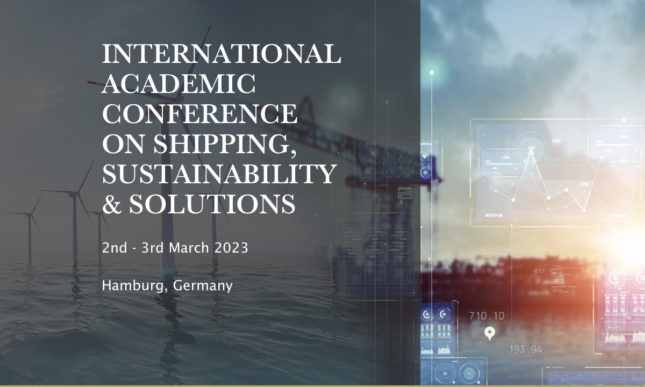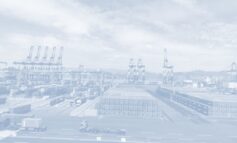Hapag-Lloyd Center for Shipping and Global Logistics
March 2-3, 2023
Hamburg, Germany
The role of shipping in global supply chains and in promoting economic development is well established. Shipping and ports, however, generate also substantial negative social and environmental impacts. The increasing awareness of these impacts has resulted in an array of policy measures and industry initiatives and is often seen as one of the drivers behind new technologies. Following the adoption of the United Nation’s Sustainable Development Goals (SDGs), the commitment in the International Maritime Organization in 2018 to reduce greenhouse gas (GHG) emissions from shipping, and the increasing pressure on coastal cities and communities to limit the negative impacts of port activities, there is an increasing interest on how to transform the maritime industry as to account for its external effects.
An increasing number of scientific contributions can be categorized in the broader domain of sustainable shipping and ports and in the maritime academic community this is often intended to include a variety of topics, including: GHG emissions, global and national maritime policy, seafarers’ wellbeing, environmental costs, alternative forms of propulsion, gender issues, maritime zone protection. Notwithstanding the increase in academic and industry interest in these topics, important questions related to the role of sustainability in the shipping and port industries remain unanswered.
The urgency of some of the challenges faced by the maritime business and by society call for increasing attention from the research community to addressing some of the sustainability issues further. The complexity associated with transforming shipping in more sustainable business requires the application of existing and novel methodological approaches and the interaction among various disciplines, from engineering, to ecology, from social sciences, to psychology, to economics and management. In view of the above, the Kühne Logistics University (KLU) and its Hapag-Lloyd Center for Shipping and Global Logistics (CSGL) invite authors and practitioners to convene in Hamburg from the 2nd and 3rd of March 2023 for an International Academic Conference on Shipping, Sustainability & Solutions (SSS).
The conference will offer the opportunity to discuss the necessary steps toward improving the sustainability profile of the maritime sector and contribute with qualitative and quantitative analyses to the assessment, modelling and estimation of environmental, social and economic aspects related to shipping and ports, with particular focus on management, operations, strategy, regulation, technologies and stakeholders. The SSF conference will provide a forum for a debate on emerging sustainability issues in maritime supply chains.
Contributions are welcome focusing on, but not limited to:
- Shipping and sustainable development goals
- Energy management in shipping operations
- Market-based measures for emission reduction
- New green technologies
- Ethics and compliance in shipping
- Pricing mechanisms for sustainable shipping
- Global and local regulatory instruments to advance more sustainable shipping practices
- Wind-assisted ship propulsion
- Alternative zero and low emission fuels
- Circular economy issues in shipping
- Green finance
- Managerial issues in promoting sustainability cultures in shipping
- Environmental and social issues throughout the ship lifecycle
- Ballast water management and biodiversity issues in shipping
- Social and human resources issues in shipping
- Security and safety issues in the maritime industry
- Applications of digitalization as a tool to reduce environmental and social impacts in shipping and ports
The submission deadline is December 16th, 2022.
Here you can find the link to the Conference Website, and here you can access the Abstract Submission details.
In case of questions, please contact:
Lara Pomaska: [email protected] or
Center for Shipping and Global Logistics: [email protected]












